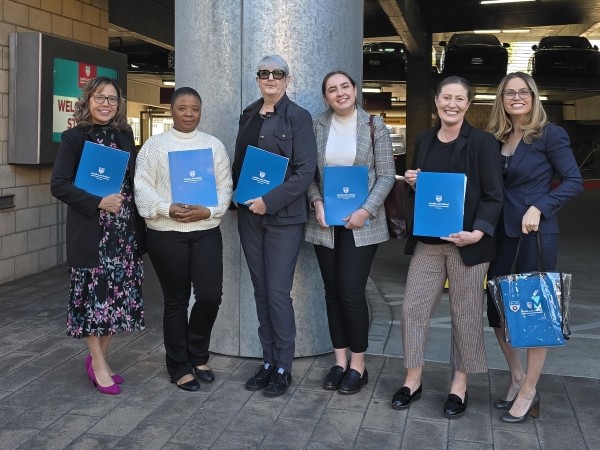Restorative Justice
Restorative Justice Pilot Program
SJI has developed a budget proposal, in collaboration with survivor leaders, for a Restorative Justice Pilot Program and is requesting a $25 million investment, to be distributed over five years at $5 million per year.
This pilot would operate at the pre-filing stage, before any criminal charges are filed, offering survivors a real choice in how they want to pursue justice. Survivors could choose to continue through the traditional criminal legal system, or opt into a restorative process grounded in healing, dignity, and consent.
If the survivor chooses Restorative Justice, the case would be referred to a trusted community-based organization. That organization would:
-
Provide wrap-around support for the survivor, including safety planning, legal advocacy, and healing services
-
Facilitate a restorative process to hold the trafficker accountable
-
Work with both survivor and community to co-define what meaningful accountability looks like
Importantly, nothing would proceed without the survivor’s full consent and active participation. For some, accountability might mean requiring the trafficker to engage in therapy, substance use treatment, or other rehabilitative supports. For others, it may mean simply being heard and acknowledged.
This pilot is a step toward building survivor-led alternatives to carceral systems—centered not on punishment, but on transformation, safety, and self-determination.
Feedback From Lived-Experience Experts
On July 24, 2024, SJI hosted a two-day Restorative Justice Conference, led in collaboration with lived experience experts, to hear directly from survivors about the proposed pilot program. The insights shared during the convening helped shape the final budget proposal for the Pilot Program. This process was designed to ensure that survivors remain at the center of this work. The goal was to keep survivors’ experiences and leadership central to every step.
To learn more about the conference and hear reflections from survivors, visit our website: Restorative Justice Conference.
Join Us in Supporting a Restorative Vision for Justice
We are calling on community leaders, service providers, advocacy groups, and survivors to sign on in support of a Restorative Justice Pilot Program for survivors of human trafficking. This pilot centers healing, accountability, and choice—and offers a real alternative to systems that too often cause further harm.
Read more below and add your name to help us make this vision a reality.
Sign-on Letter for RJ Pilot Program

Service Providers and Allies
If you’re part of an organization, agency, or advocacy group, you can amplify this work and support real alternative that promote justice and healing for survivors.
Survivors of Trafficking
If you're a survivor of trafficking or exploitation and believe in the power of restorative justice, your voice carries incredible power. Your support can help shape a future where survivors lead the way toward justice, safety, and accountability.